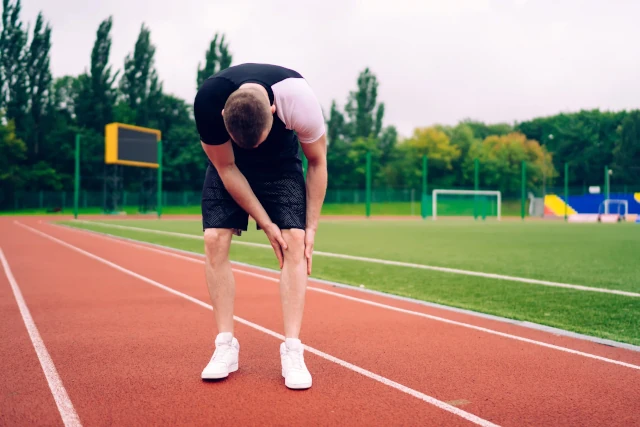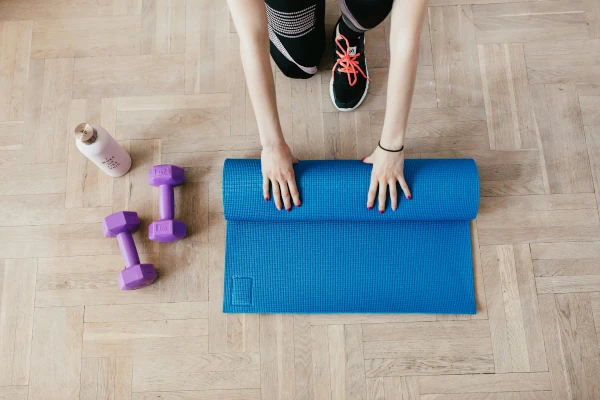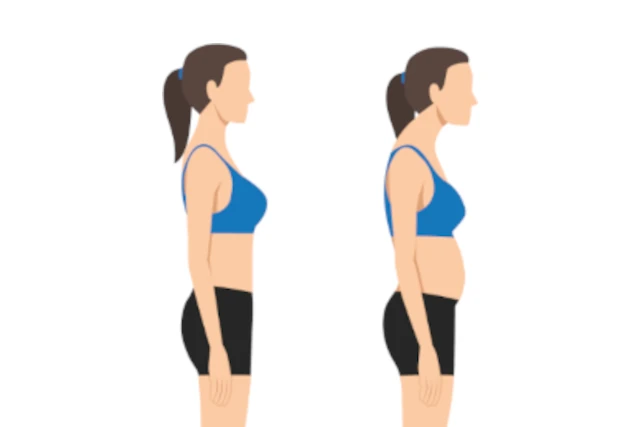
Runner's Knee: Symptoms, Causes, Recovery, and Effective Treatment
- Dr. Prachi Saini (MPT)
Connect with our expert physiotherapist for personalized physiotherapy advice.
Runner knee, also known as Patellofemoral Pain Syndrome (PFPS), is a common overuse injury among athletes, especially runners. It leads to pain around the kneecap, which can worsen with physical activities such as running, climbing stairs, or even sitting for long periods. This article will discuss the symptoms, causes, pain location, recovery strategies, and effective treatments for runner knee.
What is Runner Knee?
Runner knee refers to pain around the kneecap (patella), often linked to activities that put stress on the knee joint. It is commonly caused by repetitive movements, muscle imbalances, or improper alignment of the knee joint.
Symptoms of Runner Knee
Identifying the symptoms of runner knee is crucial for timely treatment and recovery. Here are the common signs:
- Dull, aching pain:
The pain is typically felt around or behind the kneecap and may worsen with physical activities.
- Knee swelling:
Mild swelling around the knee joint may occur.
- Cracking or popping sounds:
The knee might produce a popping or cracking noise when moving, especially when bending.
- Pain after prolonged sitting:
Sitting with bent knees for a long time can aggravate the pain.
Location of Pain in Runner Knee
The pain is generally located:
- Around the front of the knee:
Pain is typically felt on the front part of the knee, surrounding the kneecap.
- Behind the kneecap:
It may also be present behind the kneecap, where the patella meets the thigh bone (femur).
Understanding the pain location can help differentiate runner knee from other knee-related conditions, such as ligament injuries or arthritis.
Causes of Runner Knee
Runner knee is often associated with several factors, including:
- Overuse:
Repeated stress on the knee joint from activities like running or jumping can irritate the tissues.
- Muscle imbalances or weakness:
Weakness in the hip, thigh, or calf muscles can lead to improper knee alignment.
- Foot problems:
Flat feet or overpronation can affect knee alignment and increase stress on the joint.
- Improper training techniques:
Rapidly increasing mileage or changing running surfaces without proper adjustment can strain the knee.
Recovery and Treatment Options for Runner Knee
Recovering from runner knee requires a combination of rest, rehabilitation exercises, and possibly some lifestyle changes. Here are some effective strategies:
- Rest and Activity Modification
Reducing or temporarily stopping activities that aggravate the knee is essential for recovery. Gradually reintroducing exercise with proper warm-ups and cooldowns can help.
- Physical Therapy
Targeted exercises to strengthen the quadriceps, hamstrings, and hip muscles can improve knee alignment and reduce pain. Working with a physiotherapist can ensure a tailored rehab program.
- Ice Therapy
Applying ice to the knee for 15-20 minutes several times a day can reduce pain and swelling.
- Orthotics
Custom orthotics can correct foot issues like flat feet or overpronation, improving knee alignment during activities.
- Pain Relief
Nonsteroidal anti-inflammatory drugs (NSAIDs) may be used to manage pain and reduce inflammation. Always consult a healthcare professional before starting any medication.
- Taping or Knee Braces
Taping techniques or using knee braces can provide additional support and stabilize the kneecap, especially during physical activities.
Preventing Runner Knee
Preventing runner knee involves addressing the risk factors and adopting good habits:
- Strengthening exercises:
Focus on strengthening the quadriceps, hamstrings, and hip muscles to support knee stability.
- Proper footwear:
Wear supportive shoes suited for your foot type and replace them regularly to avoid wear and tear.
- Gradual training increases:
Avoid abrupt increases in running mileage or intensity.
- Stretching and warm-ups:
Incorporate dynamic stretches and warm-up routines before exercise.
Conclusion
Runner knee can be a painful and frustrating condition, especially for athletes who want to maintain an active lifestyle. Early diagnosis, proper treatment, and preventive measures are crucial for a full recovery. If you are experiencing symptoms, consult a healthcare professional for a personalized rehabilitation plan.
FAQs
- Q1: How long does it take to recover from runner knee?
Recovery can take a few weeks to several months, depending on the severity and adherence to treatment protocols.
- Q2: Can I continue running with runner knee?
It is advisable to rest or reduce running intensity until symptoms improve. Gradual reintroduction under professional guidance is recommended.
- Q3: Is runner knee permanent?
No, with appropriate treatment and preventive measures, most people recover completely. However, neglecting the symptoms can lead to chronic issues.
Connect with our expert physiotherapist for personalized physiotherapy advice.



